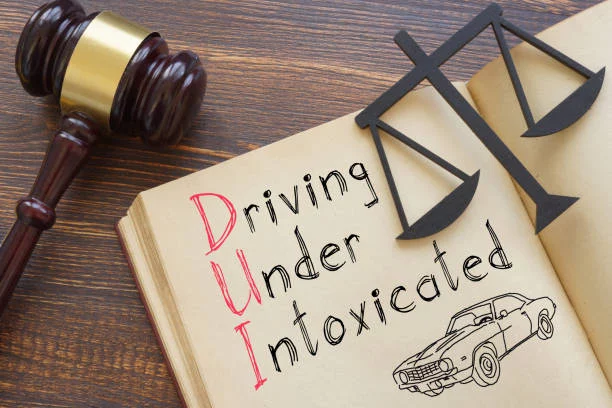Last Updated on September 1, 2025 by Lexy Summer
Driving under the influence (DUI) is a serious offense in the U.S., with penalties varying widely by state. This guide explores how DUI laws differ and why similar offenses can lead to different consequences depending on location. Remember to get the help of a DUI defense attorney to mitigate the legal consequences.
What Constitutes a DUI Offense
Before exploring state-by-state differences, it’s important to understand the standard legal threshold for DUI in the U.S. Generally, a person is considered impaired if their blood alcohol concentration (BAC) is at 0.08% or higher. However, states may impose lower thresholds for commercial drivers or those under the legal drinking age. While “DUI” is the most recognized term, you may also hear “DWI” (driving while intoxicated) or “OWI” (operating while intoxicated), with the distinctions depending on individual state statutes.
Why Penalties Differ
The U.S. grants states significant latitude in setting criminal penalties, including those for DUI. This means each state weighs factors such as public safety concerns, local political priorities, and historical data on drunk-driving incidents when shaping their DUI laws. Some states have adopted notably strict stances, introducing tough minimum sentences and swift license suspensions, while others allow more leniency, especially for first-time offenders.
Categories of DUI Penalties
Although details can vary, DUI penalties generally fall into several categories:
- Fines and Fees
- Jail or Prison Time
- Administrative License Suspension
- Ignition Interlock Device (IID) Requirements
- Alcohol Education or Treatment Programs
- Probation
Each state combines these penalties in slightly different ways, and often, local factors such as aggravating circumstances (like high BAC, accidents, or repeat offenses) can sharply increase penalties.
States Known for Harsh Penalties
Arizona
Arizona is often ranked as having the toughest DUI penalties in the country. Even a first-time DUI conviction can result in:
- Mandatory jail time (minimum of 10 days, though some may be suspended if the offender completes alcohol education)
- Minimum fines starting at $1,250, plus additional fees
- Required installation of an IID
- License suspension for 90 days or longer
Repeat offenders face higher minimum jail sentences, longer IID requirements, and extended suspension periods.
Utah
Utah is notable for its strict BAC threshold. The legal limit is 0.05% for all drivers, the lowest in the nation. Even a small amount of alcohol can lead to significant penalties, including mandatory education courses, fines, and possible jail time.
Georgia
Georgia takes a hard line, especially with mandatory jail sentences and costly administrative fees. For a first offense, mandatory jail time is at least 24 hours, with license suspension for up to one year and fines ranging from $300 to $1,000, plus community service.
Alaska
Though a large and sparsely populated state, Alaska imposes mandatory jail time—even for first offenders—with minimum sentencing of 72 hours, $1,500 in fines, and a 90-day license revocation.
States with More Lenient or Rehabilitation-Focused Penalties
South Dakota
Often cited for its relatively lenient stance, South Dakota does not require jail time for first or even second DUI offenses, focusing instead on fines, probation, and license suspension.
Pennsylvania
Pennsylvania’s approach emphasizes alcohol treatment programs for first-time offenders, and while it does impose license suspensions and fines, it reserves mandatory jail primarily for cases involving exceptionally high BAC or repeat offenses.
Wisconsin
A first offense in Wisconsin is not even classified as a criminal offense (it’s a civil violation), resulting in a fine and license suspension—but no jail time unless aggravated circumstances are present.
How Other Factors Impact DUI Penalties
Beyond geography, several factors can make a DUI penalty more or less severe:
- Repeat offenses bring dramatically increased penalties nationwide.
- High BAC levels or refusing a chemical test often trigger enhanced minimum sentences and fines.
- Accidents causing injury or death can escalate charges from misdemeanors to felonies, with years of prison time.
- Minors in the Vehicle or DUI within school zones nearly always increase penalties.
The Role of Alternative Sentencing and Technology
Increasingly, states are turning to technology and alternative sentencing to manage DUI recidivism:
- Ignition Interlock Devices: Many states now mandate IID installation even for first offenses.
- Alcohol Education/Treatment: Courts often require attendance and completion of educational courses or substance abuse treatment, viewing DUI as a public health concern, not just a criminal act.
The Importance of Local Legal Representation
Because of the wide variation in laws, anyone facing a DUI charge should consult a local attorney, such as an injury attorney like those in Salt Lake City, who understands the nuances in their state. Penalties can differ even at the county level, based on local courts and prosecutorial policies.
Conclusion
Regardless of location, law enforcement and policymakers treat DUI as a grave danger to public safety. Every state is committed to reducing drunk driving through a mix of deterrence, punishment, and rehabilitation. Should you or a loved one face a DUI charge, understanding the local statutory landscape is key to mitigating the legal and personal repercussions.

Lexy Summer is a talented writer with a deep passion for the art of language and storytelling. With a background in editing and content creation, Lexy has honed her skills in crafting clear, engaging, and grammatically flawless writing.



